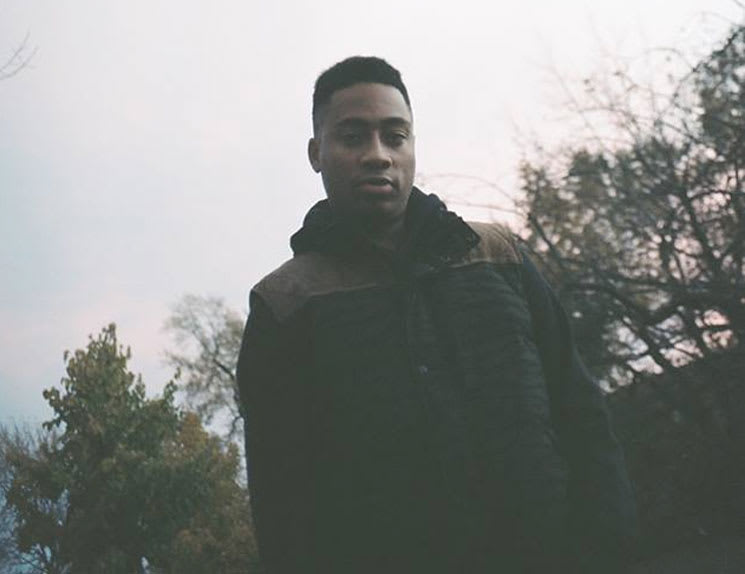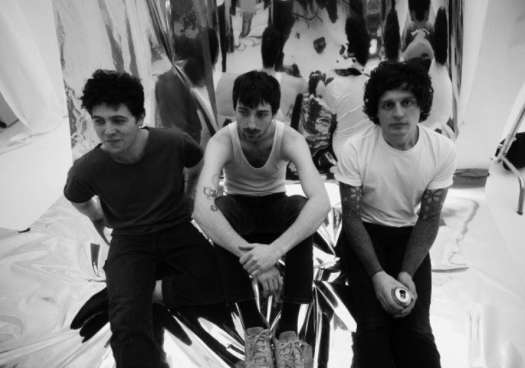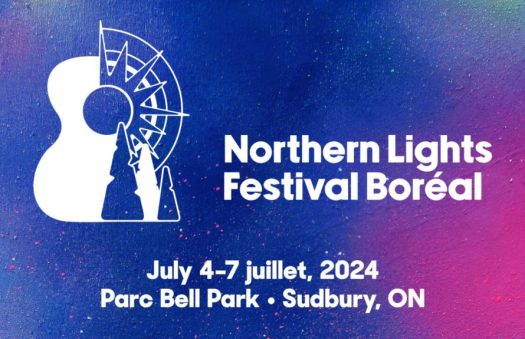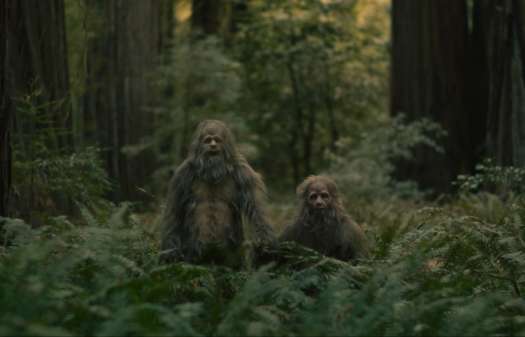Canadian rapper Cadence Weapon is the latest musician to weigh in on last weekend's Grammy controversy. While many have taken aim at Kanye West for seemingly slamming Album of the Year winner Beck — an act Yeezy now says was mis-worded — Cadence Weapon (a.k.a. Roland Pemberton) has penned a lengthy open letter putting the focus on the bigger problem of the awards show's apparent failure to "avoid the relevant sound of black music that currently has a stranglehold on the Billboard charts."
The missive was delivered today (February 11) over Facebook, with Pemberton taking a historical approach to poking holes at the Grammys. For instance, he points to artists like DJ Jazzy Jeff and the Fresh Prince and Salt-N-Pepa boycotting the show back in 1989 when it was announced that the year's inaugural award for Best Rap Performance would not be televised. It should be noted this year's Best Rap Album wasn't televised either.
Pemberton added that the Grammys missed out on awarding the golden years of rap by not even introducing the Best Rap Album category until 1996.
Throughout the letter, the rapper also points out the preposterousness of people, including Doobie Brother Michael McDonald, using "outdated thinking" by saying Beck's Morning Phase was a more worthy victor than Beyoncé's self-titled LP because Beck played more instruments.
He also challenges the Grammys by claiming they have a "bias towards old-fashioned outwardly 'conscious' or 'positive' black music" over the subtler social commentary in contemporary drill, trap and ratchet music.
There's much more to Cadence Weapon's passionate, informed piece targeting the "institutional racism" of the Grammys. You can read the letter in full down below.
"If The Grammys want real artists to keep coming back, they need to stop playing with us." – Kanye West
I decided to put my hat into the ring re. Beck/Kanye/Beyoncé/Grammys because I feel like there's been a lack of discussion about the historical precedent and context that caused Kanye West to interrupt Beck's acceptance of Album of the Year and then speak out after the awards.
To understand why Kanye feels compelled to speak out, you have to look at hip hop's history with the Grammys. The Grammys only started acknowledging that rap music was more than a fad in 1989 with the Best Rap Performance category. Eventual winners Jazzy Jeff & The Fresh Prince and nominees Salt N Pepa and LL Cool J (yep, the guy with the perpetual hat that hosted last Sunday) boycotted the ceremony because the rap awards wouldn't be televised. Salt N Pepa were quoted as saying "If they don't want us, we don't want them." This year's ceremony was the first time the rap awards were not televised since 1990, the year after the aforementioned boycott.
You may not have heard because it wasn't televised but Eminem won Best Rap Album with The Marshall Mathers LP 2 this year, his sixth win in the category. Last year Macklemore controversially beat Kanye West, Jay-Z, Drake and Kendrick Lamar for the award.
I've found that people often go out of their way to find excuses to discredit art made by black hip hop and R&B artists. I'm sure Kanye felt the same way when he talked about how Beck needs to "respect artistry" and give his award to Beyoncé. Kanye later clarified to TMZ that he meant to criticize the Grammys as an institution and not Beck specifically but people are still using his original statement as an excuse to laud Beck's multi-instrumental knowledge and relatively small list of collaborators as something that qualitatively makes him a better musician than Beyoncé and Kanye combined.
5-time Grammy winner and Doobie Brother Michael McDonald was quoted on the Dan Le Batard Show as saying, "When Kanye gets to a point where he can actually put a couple of notes together either vocally or two bars of valid music playing an instrument, then he might have a right to criticize somebody else," later celebrating Beck for being "a consummate musician. He plays instruments, many instruments. He can make his own record without having a fleet of computer operators onboard." I wonder if he has a problem with the cheques he cashes from "Regulate", a track made by computer operator Warren G that samples his song "I Keep Forgettin'."
This is the kind of outdated thinking that has challenged hip hop from the beginning and this controversy proves this bias still isn't gone. It's especially weird considering Beck used to rap, sample music and get snubbed for Album of the Year Grammys just like any other hip hop artist. Kanye argued in his post-Grammys interview with E! that the Grammys were "disrespectful to inspiration", that people actually use Beyoncé's music to get them through life. As Beyoncé sings on "Haunted", she makes music for "all the people on the planet, workin' 9 to 5, just to stay alive." Whether it's getting through traffic or turning up on the weekend, rap and R&B music is used by regular people as a temporary respite from the rigors of real life in America. So I can see how Kanye takes umbrage with the world at large using her (and to a certain extent, his) music like some kind of Feel Good Drug and then turning around and refusing to acknowledge that it also has substantial creative value.
Even though she's one of the biggest music artists in the world, Beyoncé's self-titled album is actually pretty uncompromising and experimental for a mainstream release. One of its biggest hits, "***Flawless", samples Nigerian writer Chimamanda Ngozi Adichie speaking about feminism. On this album, she also openly embraced the black music that is actually relevant today: trap and ratchet, two popular rap subgenres that are apparently considered too lowly or base to be appreciated by the National Academy of Recording Arts and Sciences, a group of 13,000 voters who probably think the three members of Migos are Steve Martin, Chevy Chase and Martin Short.
In fact, The Grammys have done anything they possibly could to avoid the relevant sound of black music that currently has a stranglehold on the Billboard charts. DJ Mustard, the minimalist impresario behind the west coast ratchet sound, was not nominated for any awards despite producing YG's critically acclaimed My Krazy Life and 11 charting Billboard singles in 2014, including top 10 single "Don't Tell 'Em" by Jeremih. "Fancy" by Iggy Azalea, a blatant knockoff of his production style, was nominated for Record of the Year.
Out of 23 performances on the night, only seven featured black artists. Sure, it's hard to imagine there would be total parity at such a musically varied event as the Grammys but take a look at what these performers were allowed to play. Did Usher get to perform his Juicy J-featuring strip club anthem "I Don't Mind", a song that is currently 13 on the Billboard Hot 100? No, he performed a cover of Stevie Wonder's "If It's Magic" arm-in-arm with the singer himself.
Did Beyoncé play her thrilling new club-conquering readymade DJ tool "7/11"? No, she performed "Take My Hand, Precious Lord", a gospel standard that represented a powerful statement about the vulnerability of black men in America. But it's like the Grammys were happy to give a platform to two performances that reference civil rights struggles of the past as long as they didn't explicitly reference the struggle that is happening today in the core of America. Imagine the show ending with YG and Kendrick Lamar's "Really Be (Smokin N Drinkin)" instead of Common and John Legend's "Glory".
Kanye hadn't performed at the Grammys as a solo artist since 2008 with "Stronger". The only way Kanye got a chance to perform this time was with two maudlin pop songs written with Paul McCartney. The performance of "FourFiveSeconds" featured a zombified looking McCartney strumming along on stage with Rihanna and West as if to reassure the TV audience that no real mainstream R&B would be performed on CBS under his watch.
Just like how the Oscars usually nominate black films and performances that involve slavery, servitude or black history and rarely give nominations to great performances where the actor or actress just happens to be a black person, the Grammys currently have a selection bias towards old-fashioned outwardly "conscious" or "positive" black music, ignoring the subtle, more incisive social commentary in California ratchet, Chicago drill music and Atlanta trap.
You might not have noticed because it wasn't televised but Beyoncé won Best R&B Song this year for "Drunk In Love". That said, it's still weird to imagine that even she has a glass ceiling to bump up against. I'll admit that Kanye's statements are starting to get in the way of people being able to appreciate his music. But I think he'll gladly lose a few fans if it helps to illustrate the larger injustice of institutional racism.
The missive was delivered today (February 11) over Facebook, with Pemberton taking a historical approach to poking holes at the Grammys. For instance, he points to artists like DJ Jazzy Jeff and the Fresh Prince and Salt-N-Pepa boycotting the show back in 1989 when it was announced that the year's inaugural award for Best Rap Performance would not be televised. It should be noted this year's Best Rap Album wasn't televised either.
Pemberton added that the Grammys missed out on awarding the golden years of rap by not even introducing the Best Rap Album category until 1996.
Throughout the letter, the rapper also points out the preposterousness of people, including Doobie Brother Michael McDonald, using "outdated thinking" by saying Beck's Morning Phase was a more worthy victor than Beyoncé's self-titled LP because Beck played more instruments.
He also challenges the Grammys by claiming they have a "bias towards old-fashioned outwardly 'conscious' or 'positive' black music" over the subtler social commentary in contemporary drill, trap and ratchet music.
There's much more to Cadence Weapon's passionate, informed piece targeting the "institutional racism" of the Grammys. You can read the letter in full down below.
"If The Grammys want real artists to keep coming back, they need to stop playing with us." – Kanye West
I decided to put my hat into the ring re. Beck/Kanye/Beyoncé/Grammys because I feel like there's been a lack of discussion about the historical precedent and context that caused Kanye West to interrupt Beck's acceptance of Album of the Year and then speak out after the awards.
To understand why Kanye feels compelled to speak out, you have to look at hip hop's history with the Grammys. The Grammys only started acknowledging that rap music was more than a fad in 1989 with the Best Rap Performance category. Eventual winners Jazzy Jeff & The Fresh Prince and nominees Salt N Pepa and LL Cool J (yep, the guy with the perpetual hat that hosted last Sunday) boycotted the ceremony because the rap awards wouldn't be televised. Salt N Pepa were quoted as saying "If they don't want us, we don't want them." This year's ceremony was the first time the rap awards were not televised since 1990, the year after the aforementioned boycott.
You may not have heard because it wasn't televised but Eminem won Best Rap Album with The Marshall Mathers LP 2 this year, his sixth win in the category. Last year Macklemore controversially beat Kanye West, Jay-Z, Drake and Kendrick Lamar for the award.
I've found that people often go out of their way to find excuses to discredit art made by black hip hop and R&B artists. I'm sure Kanye felt the same way when he talked about how Beck needs to "respect artistry" and give his award to Beyoncé. Kanye later clarified to TMZ that he meant to criticize the Grammys as an institution and not Beck specifically but people are still using his original statement as an excuse to laud Beck's multi-instrumental knowledge and relatively small list of collaborators as something that qualitatively makes him a better musician than Beyoncé and Kanye combined.
5-time Grammy winner and Doobie Brother Michael McDonald was quoted on the Dan Le Batard Show as saying, "When Kanye gets to a point where he can actually put a couple of notes together either vocally or two bars of valid music playing an instrument, then he might have a right to criticize somebody else," later celebrating Beck for being "a consummate musician. He plays instruments, many instruments. He can make his own record without having a fleet of computer operators onboard." I wonder if he has a problem with the cheques he cashes from "Regulate", a track made by computer operator Warren G that samples his song "I Keep Forgettin'."
This is the kind of outdated thinking that has challenged hip hop from the beginning and this controversy proves this bias still isn't gone. It's especially weird considering Beck used to rap, sample music and get snubbed for Album of the Year Grammys just like any other hip hop artist. Kanye argued in his post-Grammys interview with E! that the Grammys were "disrespectful to inspiration", that people actually use Beyoncé's music to get them through life. As Beyoncé sings on "Haunted", she makes music for "all the people on the planet, workin' 9 to 5, just to stay alive." Whether it's getting through traffic or turning up on the weekend, rap and R&B music is used by regular people as a temporary respite from the rigors of real life in America. So I can see how Kanye takes umbrage with the world at large using her (and to a certain extent, his) music like some kind of Feel Good Drug and then turning around and refusing to acknowledge that it also has substantial creative value.
Even though she's one of the biggest music artists in the world, Beyoncé's self-titled album is actually pretty uncompromising and experimental for a mainstream release. One of its biggest hits, "***Flawless", samples Nigerian writer Chimamanda Ngozi Adichie speaking about feminism. On this album, she also openly embraced the black music that is actually relevant today: trap and ratchet, two popular rap subgenres that are apparently considered too lowly or base to be appreciated by the National Academy of Recording Arts and Sciences, a group of 13,000 voters who probably think the three members of Migos are Steve Martin, Chevy Chase and Martin Short.
In fact, The Grammys have done anything they possibly could to avoid the relevant sound of black music that currently has a stranglehold on the Billboard charts. DJ Mustard, the minimalist impresario behind the west coast ratchet sound, was not nominated for any awards despite producing YG's critically acclaimed My Krazy Life and 11 charting Billboard singles in 2014, including top 10 single "Don't Tell 'Em" by Jeremih. "Fancy" by Iggy Azalea, a blatant knockoff of his production style, was nominated for Record of the Year.
Out of 23 performances on the night, only seven featured black artists. Sure, it's hard to imagine there would be total parity at such a musically varied event as the Grammys but take a look at what these performers were allowed to play. Did Usher get to perform his Juicy J-featuring strip club anthem "I Don't Mind", a song that is currently 13 on the Billboard Hot 100? No, he performed a cover of Stevie Wonder's "If It's Magic" arm-in-arm with the singer himself.
Did Beyoncé play her thrilling new club-conquering readymade DJ tool "7/11"? No, she performed "Take My Hand, Precious Lord", a gospel standard that represented a powerful statement about the vulnerability of black men in America. But it's like the Grammys were happy to give a platform to two performances that reference civil rights struggles of the past as long as they didn't explicitly reference the struggle that is happening today in the core of America. Imagine the show ending with YG and Kendrick Lamar's "Really Be (Smokin N Drinkin)" instead of Common and John Legend's "Glory".
Kanye hadn't performed at the Grammys as a solo artist since 2008 with "Stronger". The only way Kanye got a chance to perform this time was with two maudlin pop songs written with Paul McCartney. The performance of "FourFiveSeconds" featured a zombified looking McCartney strumming along on stage with Rihanna and West as if to reassure the TV audience that no real mainstream R&B would be performed on CBS under his watch.
Just like how the Oscars usually nominate black films and performances that involve slavery, servitude or black history and rarely give nominations to great performances where the actor or actress just happens to be a black person, the Grammys currently have a selection bias towards old-fashioned outwardly "conscious" or "positive" black music, ignoring the subtle, more incisive social commentary in California ratchet, Chicago drill music and Atlanta trap.
You might not have noticed because it wasn't televised but Beyoncé won Best R&B Song this year for "Drunk In Love". That said, it's still weird to imagine that even she has a glass ceiling to bump up against. I'll admit that Kanye's statements are starting to get in the way of people being able to appreciate his music. But I think he'll gladly lose a few fans if it helps to illustrate the larger injustice of institutional racism.




